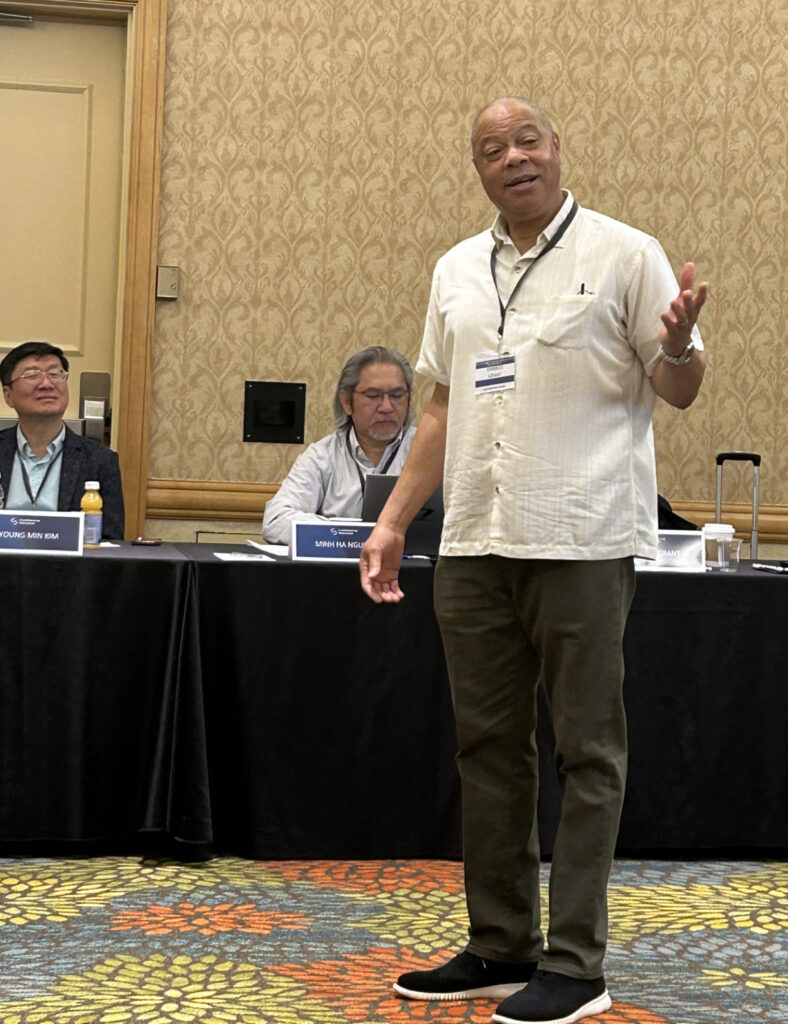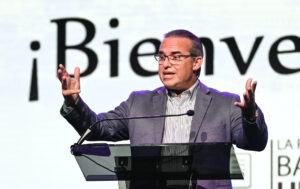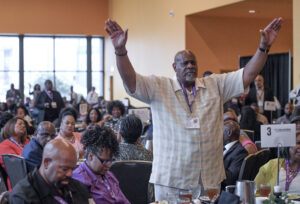
ORLANDO, Fla. (BP) – Hispanic, Asian and African American leaders from across the Southern Baptist Convention gathered in the Sunshine State April 16-17 to share how they see God working and to share ideas.
“Kingdom work is great work because it helps us to worship God, and because it helps in the transformation of lives,” Charles Grant told attendees of the Convention Advancement Partners Retreat. Grant is the associate vice president for Convention Advancement and Relations with the SBC Executive Committee.

“Kingdom work is stewardship … and Kingdom work is delightful work when giving becomes personal,” Grant said, based on 1 Chronicles 29:1-3.
Grant said the meeting was aimed at encouraging practical fellowship among the partners, sharing ideas and planning for next year’s 100th anniversary of the Cooperative Program.
Newly named SBC Executive Committee President-elect Jeff Iorg thanked the group via video.
“The Cooperative Program was not a financial program hatched by someone just to get more money from the churches,” Iorg said. “It was instead the fulfillment of a dream. It was dream of collaboration of coming together to do more together than we can do individually.”
The group learned about the tools available to major Southern Baptist ethnic groups to engage churches, provide awareness about CP and join forces by participating in Cooperative Program giving.
They include promotional videos, a Facebook page, and the popular Navigating the SBC handbook which teaches how the SBC is organized and functions.
At the retreat, leaders were able to meet in affinity groups to share ideas and best practices for elevating NexGen ministries and CP giving strategies. They also had the opportunity to create a CP personal testimony sharing how CP has contributed to their ministry life.

“Giving to the Cooperative Program is not a membership fee,” saidPastor James Kang, executive director of the Council of Korean Southern Baptist Churches in America. “There is a big need for education about CP, and it is necessary to promoteCP and hear about CP more than once. There is a need for pastors, leaders and churches to own the concept of CP and feel part of it in order for it to advance.”
Bruno Molina, executive director of the National Hispanic Baptist Network, emphasized the need for relating CP to each ethnic group, saying, “churches can’t be a part of something they don’t really understand.”
Florida pastor Patrick Coats said there is great need in helping churches understand the “why” of CP and to help “pastors understand they don’t serve alone.”
Missions researcher Minh Ha Nguyen shared parts of his research data among ethnic groups that he will unveil at the SBC annual meeting, which allowed the network leaders to think about long-term effects of their future ethnic ministries and the importance of CP.
According to Grant, the EC’s office of Convention Advancement and Relations exists to, “Create and cultivate a cooperative culture so every nation, tribe, people, and tongue (Revelation 7:9) can collaborate to advance the Gospel around the world.”
The group consists 11,000 diverse churches across the SBC.
Grant encouraged the leaders to educate their congregations about Cooperative Program giving because of the importance that it has on the Southern Baptist community.
“As CP ambassadors, in order to lift up CP giving, we need to lift up the value of kingdom work,” he said.
















